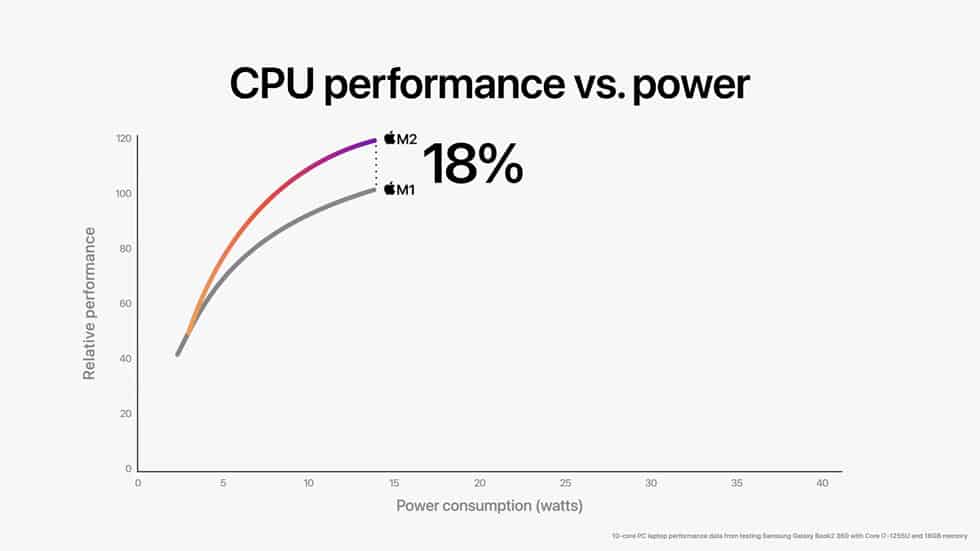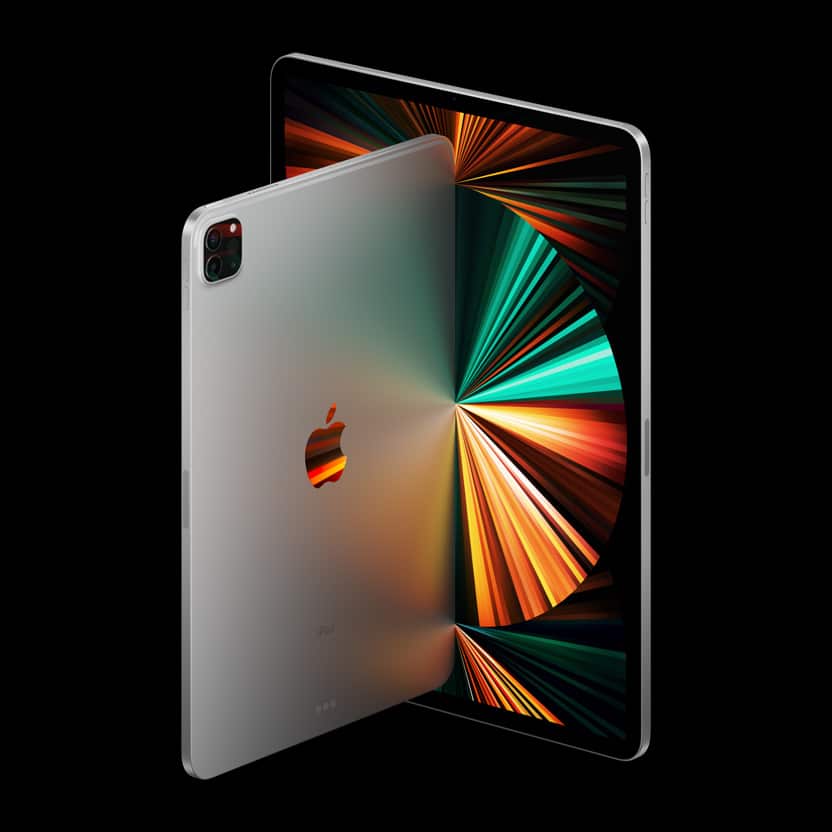Apple may be operating its bespoke hardware at a reduced performance level in its premium tablets, even though the company uses the same M2 processor in its new MacBook Pro, redesigned MacBook Air, and updated iPad Pro models. Wccftech found out about these disparities in the marketing material provided by the company.
A 3% performance difference is present between the M2 featured in the most recent iPad Pro models and the MacBook Pro and MacBook Air,
In its news announcement, Apple offers the following description of what the M2 is like when functioning as one of the company’s families of portable Macs.
“The new CPU features faster performance cores paired with a larger cache, while the efficiency cores have been significantly enhanced for even greater performance gains. Together, they deliver 18 percent greater multithreaded performance than M1, so M2 can rip through CPU-intensive tasks using very little power, like creating music with layers of effects or applying complex filters to photos.”
In the press announcement for the iPad Pro, Apple specifies the same M2 processor but with different performance variances when compared to the M1. It’s important to remember that the M2 was analyzed against the M1 in both instances.
“M2 features an 8-core CPU — up to 15 percent faster than M1 — with advancements in both performance and efficiency cores, and a 10-core GPU, delivering up to 35 percent faster graphics performance for the most demanding users.”
According to the data, the M2 in the newest iPad Pro is 3 percent slower, but that’s only in terms of processing speed. Although we can see why Apple would operate the CPU at a lower frequency, both press releases claim that the 10-core GPU offers up to 35% more graphics performance than the M1. Despite being tested on the most up-to-date MacBook Air, it was discovered that the machine was badly throttling, losing roughly 25% performance in multi-core testing compared to the MacBook Pro.
The absence of an active cooling solution was to blame; when used, the MacBook Pro’s fan may significantly lower the M2’s operating temperature. Despite the M2 having greater cooling space in the notebook, thermal throttling persisted even after the overheating issues of the MacBook Air were fixed with relatively simple modding. As Apple’s most recent tablets are thinner, the company will have even less leeway to maneuver when it comes to cooling the processor, which likely explains why varied performance statistics have been given for the same silicon.
With the iPad Pro’s M2 processor operating up to 15% quicker than the M1, we’ll have to wait and see how far those performance statistics fall in sustained load testing when the first benchmarks are released. We can only hope that the SoC does not employ too much throttling. Apart from that, the M2 has the same memory bandwidth and Neural Engine operations as all other devices; thus, Apple did not disclose any modifications in its press statement.
Via Wccftech





